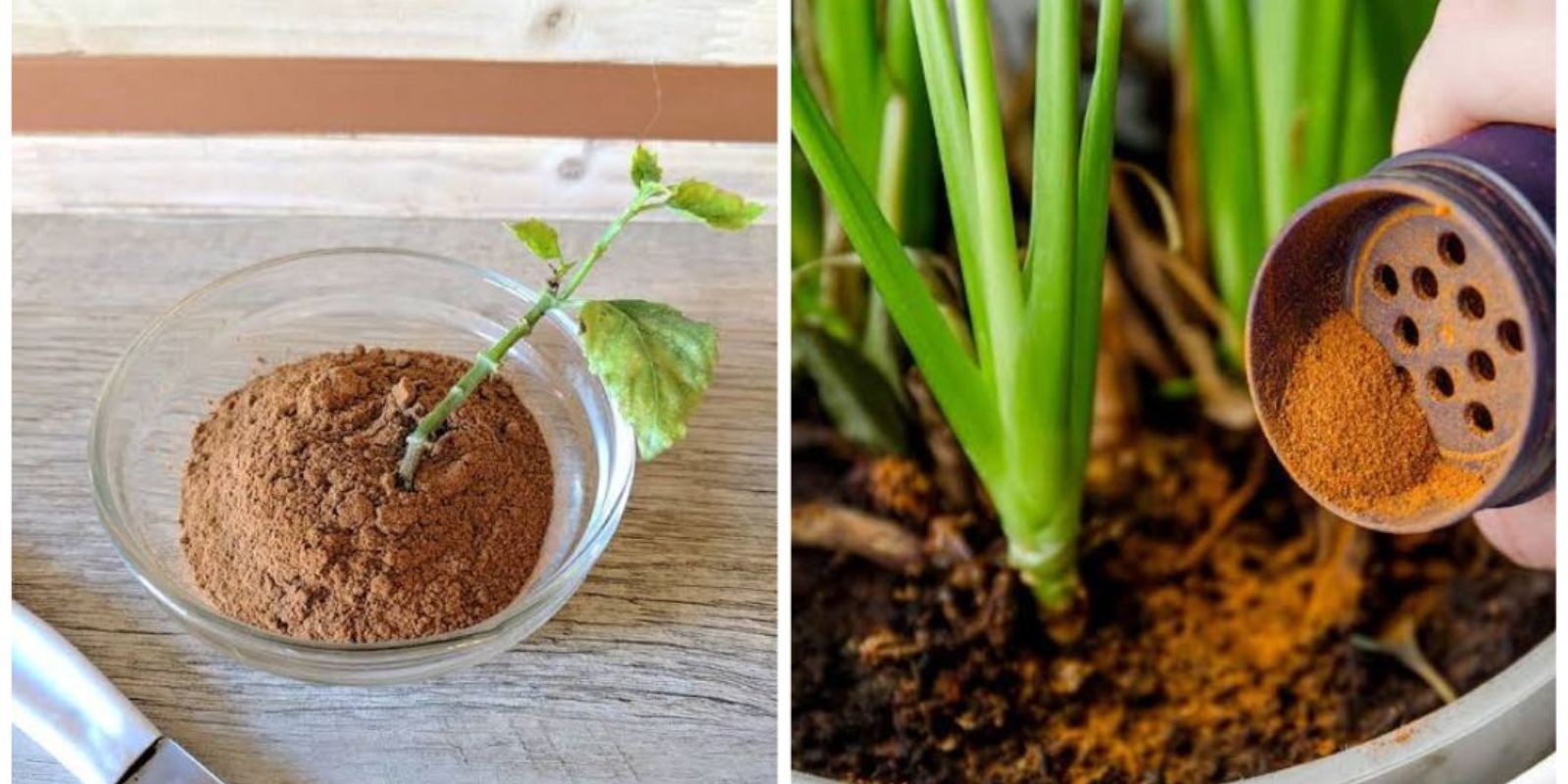Cinnamon, a staple in most kitchens, is much more than a flavorful addition to your favorite recipes. For gardeners, it’s an all-natural powerhouse capable of transforming your plant care routine. With its antifungal, antibacterial, and pest-repelling properties, cinnamon can address many common gardening challenges while boosting the health and growth of your plants. Whether you’re nurturing seedlings or tending to mature plants, cinnamon can become your secret gardening ally. In this article, we’ll explore eight amazing reasons why plants love cinnamon and how you can use it effectively in your garden.
1. Prevents Fungal Diseases
Fungal diseases, such as damping-off, are a common challenge for gardeners, especially when starting seedlings. Damping-off causes seedlings to rot at the base, often killing them before they even get a chance to grow. Cinnamon acts as a natural antifungal agent. Sprinkling a thin layer of cinnamon on the soil surface can create a protective barrier that prevents fungal spores from taking hold.
- How to Use: Lightly dust cinnamon over the soil after planting your seeds. Repeat every few weeks for ongoing protection.
2. Repels Pests
Cinnamon is a natural deterrent for pests like ants, gnats, and other crawling insects that can damage your plants or invade your home garden. Its strong scent confuses pests, making it difficult for them to navigate or detect food sources.
- How to Use: Sprinkle cinnamon around the base of plants or at the entry points of your garden to keep ants and pests at bay. For houseplants, create a small ring of cinnamon on the surface of the potting soil.
3. Promotes Rooting
Cinnamon can encourage root growth in plant cuttings, making it an excellent natural alternative to synthetic rooting hormones. When applied to cuttings, cinnamon stimulates the development of strong, healthy roots while protecting against rot and infection.
- How to Use: Dip the cut end of your plant cutting in cinnamon powder before planting it in soil or water. This simple step can significantly improve your success rate when propagating plants.
4. Heals Plant Wounds
Pruning, accidental damage, or pest infestations can leave plants with open wounds that are vulnerable to infection. Applying cinnamon to these areas acts as a natural antiseptic, helping plants heal faster and preventing disease.
- How to Use: After pruning or removing a damaged leaf or branch, sprinkle cinnamon powder directly onto the wound.
5. Controls Mushrooms
If you’ve ever noticed unwanted mushrooms popping up in your garden or potted plants, cinnamon can help. Its antifungal properties inhibit the growth of mushrooms, keeping your soil clean and your plants healthy.
- How to Use: Sprinkle cinnamon on the affected areas of soil. For larger outbreaks, mix cinnamon into the top layer of soil.
6. Deters Mosquitoes
Mosquitoes are not only annoying but can also pose a risk to plants and humans alike. Cinnamon is a natural mosquito repellent, particularly effective against mosquito larvae that breed in standing water.
- How to Use: Add a teaspoon of cinnamon powder to water features, bird baths, or saucers under pots to prevent mosquitoes from breeding.
7. Acts as a Natural Fungicide
Cinnamon’s antifungal properties make it an excellent natural fungicide for plants. If your plants are struggling with powdery mildew or mold, cinnamon can provide relief without the need for harsh chemicals.
- How to Use: Mix one teaspoon of cinnamon powder with a liter of warm water. Let the mixture sit for 24 hours, strain it, and use the liquid as a spray for infected leaves and stems.
8. Boosts Seed Germination
Seeds are particularly vulnerable to rot and fungal infections during germination. By protecting seeds with cinnamon, you can improve their chances of sprouting and growing into healthy plants.
- How to Use: Dust seeds lightly with cinnamon before planting. Alternatively, mix cinnamon into the soil where the seeds will be planted.
Additional Tips for Using Cinnamon in the Garden
- Avoid Overuse: While cinnamon is safe and effective, using too much can alter the soil’s natural balance. Apply it sparingly.
- Combine with Other Natural Remedies: Cinnamon works well alongside other organic gardening solutions like neem oil, garlic sprays, and compost.
- Use Fresh Cinnamon: For best results, use fresh cinnamon powder. Its effectiveness may decrease over time if it’s old or improperly stored.
Why Cinnamon Is a Gardener’s Best Friend
Cinnamon is a budget-friendly, eco-friendly, and versatile gardening tool that addresses many common plant issues. Unlike synthetic chemicals, cinnamon is safe for the environment, pets, and humans. It not only helps plants thrive but also ensures a healthier ecosystem in your garden. Whether you’re a seasoned gardener or just starting, adding cinnamon to your plant care routine is a simple yet effective step that can yield remarkable results.
Call to Action
Are you ready to harness the power of cinnamon for your plants? Give these tips a try and watch your garden flourish like never before! Do you have your own cinnamon gardening hacks? Share them in the comments below.
Viral Gardening Hashtags
🌱 #GardeningHacks #PlantCareTips #OrganicGardening #CinnamonForPlants #NaturalGardening #HomeGardenSecrets #GardeningMadeSimple #EcoFriendlyGardening

